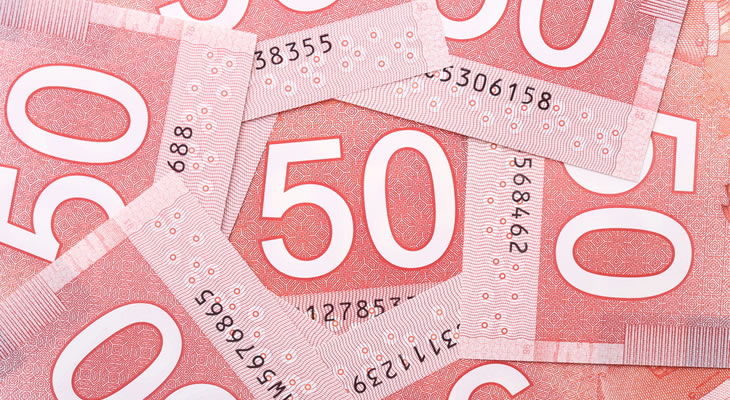The Pound Sterling to Canadian Dollar (GBP/CAD) exchange rate declined by around -0.22% on Monday morning.
After British data last week indicated that the UK’s economic momentum was weaker-than-expected, the Pound slumped versus nearly all of its most traded rivals. The Canadian Dollar, meanwhile, also softened versus many of its peers thanks to continued issues in the crude market.
The Pound Sterling to Canadian Dollar (GBP/CAD) exchange rate is currently trending in the region of 1.7939.
At the close of last week, the Pound Sterling to Canadian Dollar (GBP/CAD) exchange rate rallied by around 0.73% after Canada’s economy unexpectedly lost positions.
As highlighted by The Wall Street Journal; ‘Canada shed 4,300 net new jobs last month following a loss of 10,700 jobs in November, leaving the unemployment rate unchanged at 6.6% […] It was the first back-to-back job loss since mid-2009, when the economy was mired in recession.’
With a complete absence of Canadian economic data over the coming week, the ‘Loonie’ (CAD) could potentially continue the declination initiated on Friday. With that being said, changes in the commodities market and US Dollar movement are likely to affect the Canadian Dollar.
Pound Sterling (GBP) Exchange Rate Forecast to Strengthen
After having endured a long period of depreciation, there is potential for the Pound to advance over the course of the week should domestic data print positively. However, with sentiment towards the Bank of England (BOE) dampened after their uneventful recent policy decision, any appreciation is likely to be slow-paced.
Of particular importance will be inflation rate data. Having declined repeatedly during the latter half of 2014, the BoE will be hoping that inflation begins moving towards its target of 2.0%.
The year-on-year inflation rate is forecast to improve from 1.0% to 1.11% in December.
The Producer Price Index and Retail Price Index will also be of interest to those trading with the British Pound.
However, while CPI data is highly influential at the moment, the way inflation is measured in Britain could change in the future.
As noted by Mehreen Khan; ‘Britain’s main measure of inflation should be amended to take better account of the pressures faced by the country’s householders, according to a review of the country’s official statistics. There is a “strong case” for abandoning the current official measure of price rises, the Consumer Prices Index (CPI), with a gauge which includes a form of owner-occupied housing costs (CPIH), according to Paul Johnson, director of the Institute of Fiscal Studies.’
Canadian Dollar (CAD) Exchange Rate Forecast to Soften
With a complete absence of data to curb the trend, the Canadian Dollar has the potential to continue trending lower over the course of next week. Much of the ‘loonie’ movement will be subject to fluctuations in the oil market. With oil prices still below $50 a barrel, however, futures traders aren’t optimistic for a speedy rebound.
Another potential influence on Canadian Dollar volatility will be US Dollar movement. If the ‘Greenback’ (USD) manages to rebound from Friday’s decline, the Canadian Dollar could track the upsurge. In addition, trader risk sentiment will play a role in the position of the ‘Loonie’ over the course of the week, although it is fair to say that risk appetite will be closely linked to the price of oil.

